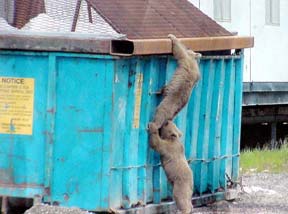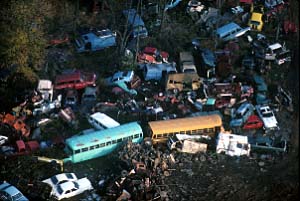a) Writing
b) Critical thinking (critical thinking
involves: "following evidence where it leads; considering
all possibilities; relying on reason rather than emotion; being
precise; considering a variety of possible viewpoints and explanations;
weighing the effects of motives and biases; being concerned more
with finding the truth than with being right; not rejecting unpopular
views out of hand; being aware of one's own prejudices and biases,
and not allowing them to sway one's judgment." (Kurland in
Fowler, 1996)
c) Quantitative skills (these skills
include a whole slew of skills revolving around thinking and manipulating
numbers -- anything from thinking about measurements to making
calculations to interpreting numbers and tables that you see in
newspapers or books)
d) Handling responsibility
e) Getting yourself motivated
f) Handing things in on time
g) Working in an interdisciplinary
setting (that is, working in either work or school setting where
you have to take into account a range of perspectives and types
of knowledge -- e.g. social, political and biological; or psychological,
economical and environmental)
h) Working with a diverse group of
peers (diverse, for example, in terms of culture, experiences,
preferences, skills, and opinions)
i) Working in groups
![]() to see
where new information is]
to see
where new information is]






